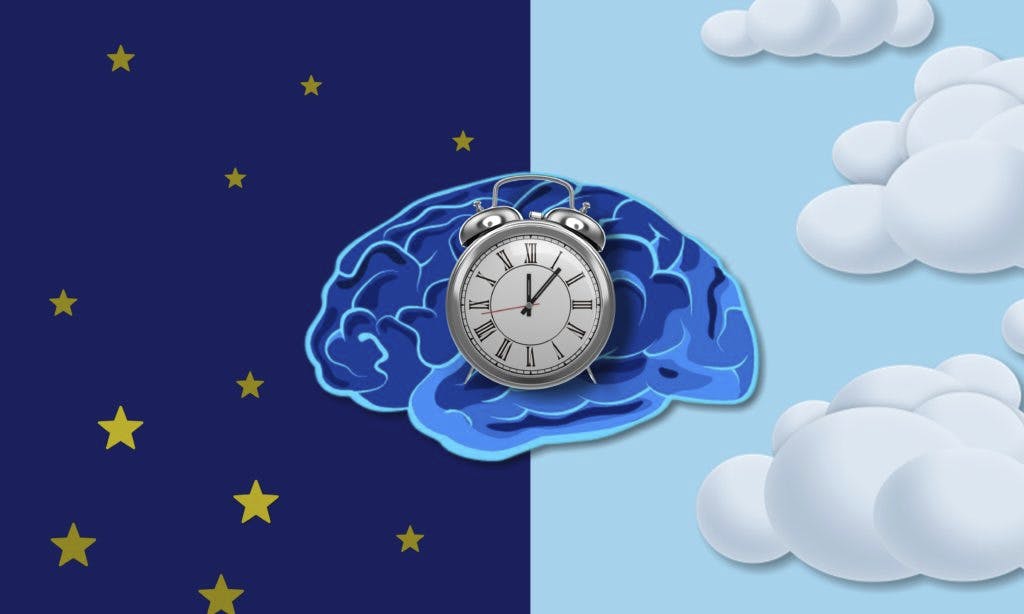
Sleep is an incredibly important part of our everyday lives; it helps us to stay productive, focused, and energized. To truly understand the importance of good sleep hygiene and how it affects our day-to-day functioning, we must first explore what is meant by circadian rhythm. Your circadian rhythm is essentially an internal biological clock that works in tandem with environmental cues such as light and temperature to regulate your wakefulness during the day. It’s not only responsible for dictating when you feel sleepy or alert but also impacts other processes such as hormone production, metabolism, and body temperature regulation. Therefore having a disrupted circadian rhythm can have serious implications on many aspects of your health including your sleep patterns! In this blog post, we will explain what exactly a circadian rhythm consists of and how disruptions to this crucial routine could severely impact your sleep quality.
What is circadian rhythm and what are its functions
Circadian rhythm is a daily, physical, mental, and behavioral cycle that responds to light and darkness. Also referred to as the “body clock”, it allows us to function optimally by instinctively responding to changes from day to night. This biological process engages with the environment to schedule when we should be awake and when we should be asleep. It also interacts with our metabolism to determine how foods are absorbed and converted into energy throughout the day. Our bodies can respond accordingly due to various hormones and regulatory mechanisms that evolve according to our internal circadian rhythm. Therefore, it is important to pay attention to its effects on our well-being as consistent disruption can cause both physical and mental health issues. Understanding how this natural phenomenon works could make a dramatic difference in your overall health in the long run.
How light exposure affects circadian rhythm
Light exposure is a key element in regulating the circadian rhythm. The suprachiasmatic nucleus which sits just behind your eyes is responsible for setting this internal clock, and it links our biological cycles to the solar day with aid from light signals. These light signals travel through the eyes to the suprachiasmatic nucleus, and it sends impulses that coordinate hormones and other processes throughout the body. Our natural circadian rhythm runs on a 24-hour and 15-minute cycle which is why we need sunlight to reset our internal clock each day. While much can be said about how factors like diet play into one’s circadian rhythm, there is no doubt that daylight plays a major role in regulating it.
The sleep-wake cycle and how it’s regulated by the brain
Your brain’s internal clock is more than just a timekeeper. It acts as an orchestra conductor, uniting the different regions of your brain to ensure that you sleep soundly each night. The circadian rhythm sets the tempo and the various brain regions act like individual musicians playing in harmony with one another towards deep slumber or Non-Rapid Eye Movement (NREM) Sleep & Rapid Eye Movement (REM). Between REM and NREM sleep also occurs light sleep. All three phases of sleep are needed for healthy restorative sleep. We will delve into the importance of these phases of the sleep cycle in future Blogs.
Factors that can disrupt your natural sleep-wake cycle
Achieving a restful night’s sleep isn’t as simple as turning out the lights and counting sheep. Factors such as insufficient morning sunlight, artificial lighting at night, indulging in alcohol or snacks before bedtime, and drinking excessive fluids can all disrupt our natural sleep cycle rhythm causing us to wake fatigued and unwell the following day.
How to establish a healthy sleep routine
Achieving and maintaining a healthy sleep routine requires both discipline and self-awareness. The most important components include receiving at least 15-30 minutes of natural sunlight in the morning and dimming the lights in your home as darkness sets. This signals to your brain the solar schedule that your body will follow. Avoid alcohol before bedtime, consuming alcohol causes sleep cycle fragmentation. Have your last drink of caffeine at least twelve hours before bedtime to maximize sleep pressure. Choosing a bedtime on your natural chronotype aligns your unique physiology with the solar schedule bringing about easier sleep. Watch your intake of beverages during the evening hours. Consuming too many fluids late at night may lead to multiple nighttime bathroom breaks, disrupting normal sleep patterns
Getting a good night’s sleep is crucial for our physical and mental health, yet many of us find it difficult to get the recommended 8 hours per night. Luckily, there are things we can do to help improve our sleep habits and get the shut-eye our bodies need. If you have any concerns about your sleep patterns or would like more personalized recommendations, schedule an appointment with us using the orange link top right of this page. In the meantime, try implementing some of these tips and see if they help you catch some extra Zzzs tonight.
